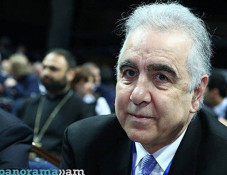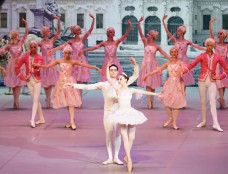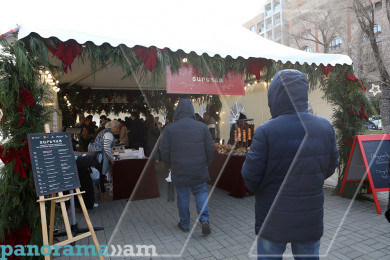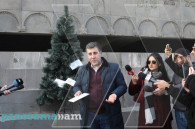
BBC: History books in Azerbaijan are written with nationalistic approach
Modern history textbooks taught at Azerbaijani schools are written with nationalistic approach, told Nabatali Gulamoglu, Azerbaijani expert in the field of education, in an interview with the British Broadcasting Corporation (BBC).
Writing a single history textbook in Russia gives rise to a lot of arguments: they argue whether they need such a textbook, and how to write it when the society is split as regards to its own past. The Russian Service of BBC has touched upon the issues of how textbooks are being written in Azerbaijan.
"Generally, many countries try to write their own history, emphasizing the role of the war heroes. Therefore, there is fairly little criticism in our textbooks, if any at all. There should be issued alternative textbooks in order to somehow oppose this situation, for those who read them, could compare different viewpoints and knew what happened in reality," said the expert in education sphere Nabatali Gulamoglu.
The article quotes an extract from the Azerbaijani history textbook of a fifth grade, "The Khojaly tragedy": "A lot of tragic and sad events have happened in history, but Khojaly is the biggest and saddest one of them. It is not only the most terrible tragedy that Azerbaijan faced, but is the worst one that faced the humanity."
Here is another quote concerning the events that happened in January 1990, "Black January ": "The leaders of the Soviet empire, wanted to stop the disintegration of the USSR and to scare those people who demanded freedom. It was decided to organize a massacre in Baku, in the epicenter of the liberation movement. A lot of troops moved to Baku. '"
"Those who form our textbooks are subjected to populistic sentiments; they present the fictional and illogical things as a fact. The political position strongly influences it. The authors of these textbooks believe that thus they serve the people, but they do not realize the true meaning of these words. They are not independent," the expert, who is a member of a group involved in the monitoring of textbooks published in Azerbaijan, noted.
According Gulamoglu certain authors and publishers in Azerbaijan have a monopoly on writing history books.
At the same time they are trying to write carefully about the Soviet times in Azerbaijan, because they think that otherwise it could harm their relations with Russia: "The way that the Soviet period was presented in textbooks, never reflects the real story of those times. No need to exaggerate or to try to describe the bygone era in a romantic style. This may last 5-10 years, but when the grown-generation discovers the truth, we will be ashamed."
On January 13-19, in 1990 pogroms took place in Baku, during which according to official figures of Azerbaijan 56 Armenians were killed, while according to witnesses - about a thousand people. The rest of the Armenian population of Baku, which was estimated over 200,000, was expelled from the Azerbaijani capital. Azerbaijani militants attempted to resist; 28 Soviet soldiers were killed, more than 90 were wounded. According to official figures of Azerbaijan as a result of the introduction of troops 132 "civilians" of Baku were killed and 744 were wounded. However, some experts argue that among the killed "civilians" there were both Azerbaijani militants and Armenians murdered a few days earlier by Azerbaijani nationalists.
On February 26, 1992, during the war in Karabakh, around 200 to 300 people (according to Human Right Watch, and 600 according to the version propagated by Azerbaijan) were killed in unknown circumstances near the city of Aghdam. They have been deliberately withheld by the Azerbaijani authorities in the midst of the military actions. Population of the village of Khojalu, which was one of the firing points shooting at the blockaded Stepanakert (among five others) was kept in the village for months by force and was not evacuated by the authorities of Azerbaijan deliberately, in order to use them as human shields later.
Newsfeed
Videos






























